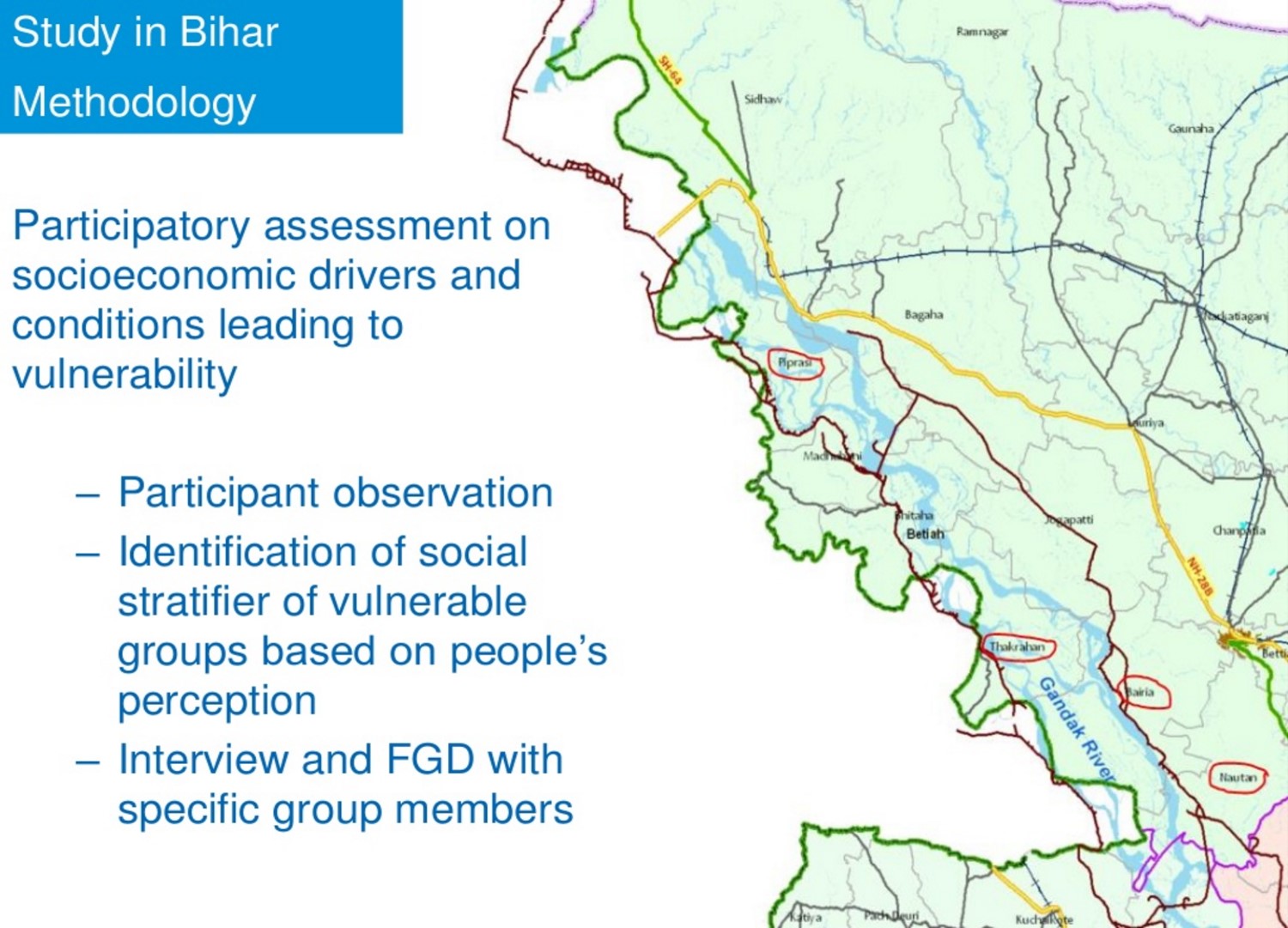|
The intersections between gender, food security and climate change are quickly emerging to be nascent issues in the adaptation debate. Even with an emphasis on gender neutral and progressive economic reforms across the developing world, women continue to remain the most at risk in terms of food security. In the South Asian context, coupled with conservative social norms, this risk is further increased due to women being limited in all spheres of socio-economic activity. UEA, UK in collaboration with International Food Policy Research Institute, organized a workshop on Gender Just Food and Nutrition Security. With a current push on various sectoral reforms in India by the reigning government, HI-AWARE’s presence at such a workshop was important. |
The meeting was attended by 30 participants from various academic and research backgrounds, representing government agencies, and NGOs and INGOs. The session was inaugurated by Ms. Lalita Kumaramangalam, chairperson of the National Commission for Women.
The nature of the presentations largely focused on empowering women in their various roles, in terms of food security. It also included the experience of other programs such as, Integrated Child Development Services (ICDS), and Mahatma Gandhi National Rural Employment Guarantee Act (MGNREGA).
HI-AWARE’s contribution to the event was in form of being the only presentation out of the collection, focusing on the dimensions of Gender, Flood and Food Security. Each year, due to increased pulse (short but extreme climatic events) events during the monsoon period in India, hundreds of thousands of people are affected. Since large portions of habitations are in the floodplains of large rivers, with their livelihoods intrinsically linked to these basins, the effects of such large scale events are profound. Presenting the issues was senior HI-AWARE researcher and gender specialist, Dr. Pranita Bhusan Udas. Based on Dr. Udas’s field experience with community drinking, women widows initiated the use of dug-wells after the death of their husbands. These men were generally suffering from cancer, where the assumption was that this was due to drinking arsenic contaminated water. Dr. Udas’ emphasized the need to consider contaminated drinking water in discussion of gender, food and nutrition security.
 A screenshot of one of the slides from the presentation.
A screenshot of one of the slides from the presentation.
The presentation also highlighted issues related to vulnerability of landless women in flood prone areas, where various socio-economic factors such as limited food access, debt pressure due to dowry loans and indentured labour continue to hinder any notions of economic upliftment. The presentation is hosted on HI-AWARE’s slideshare account which can be found here.
